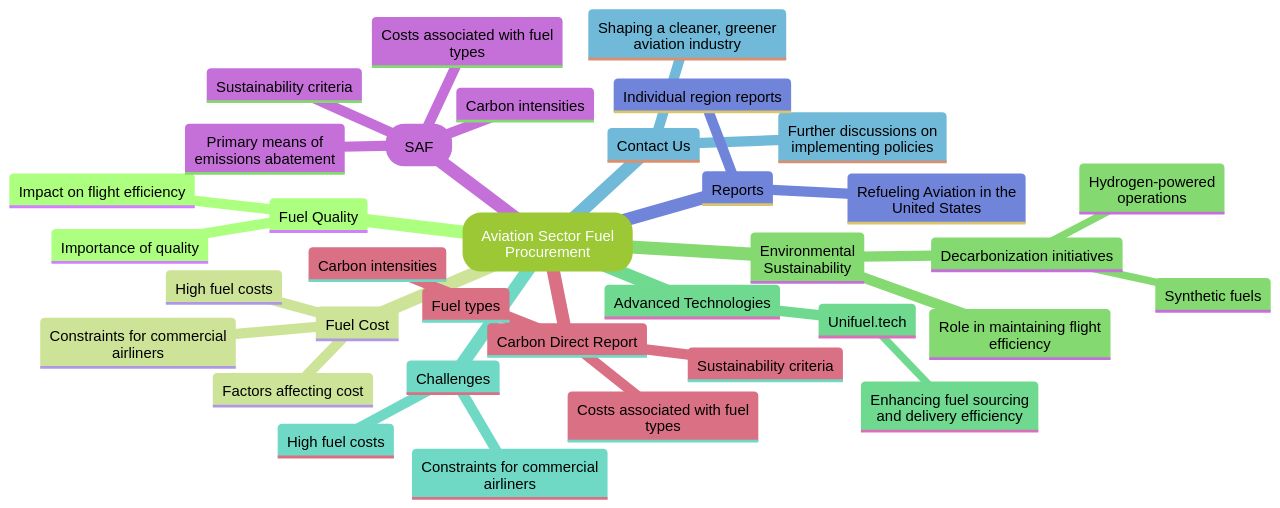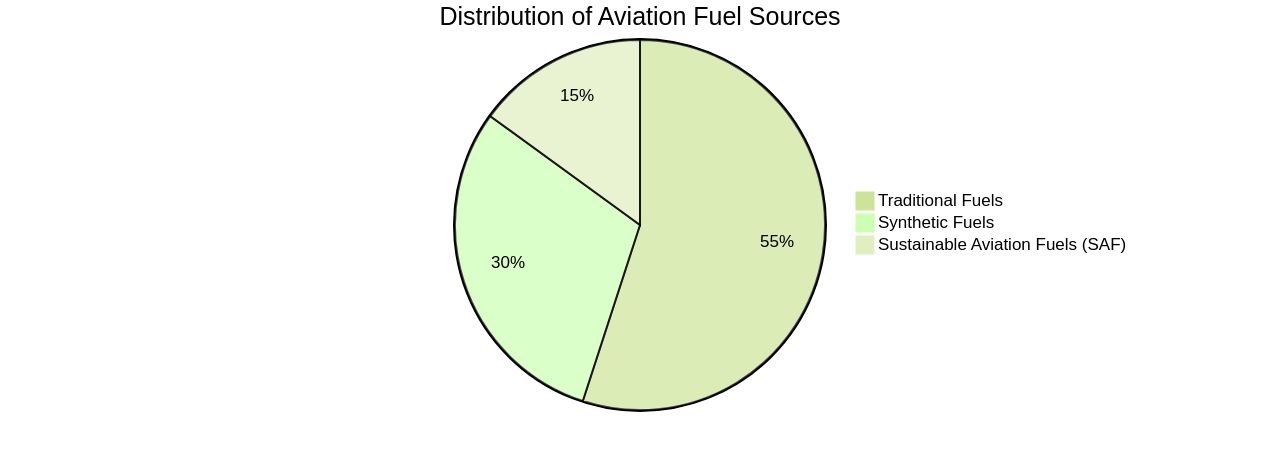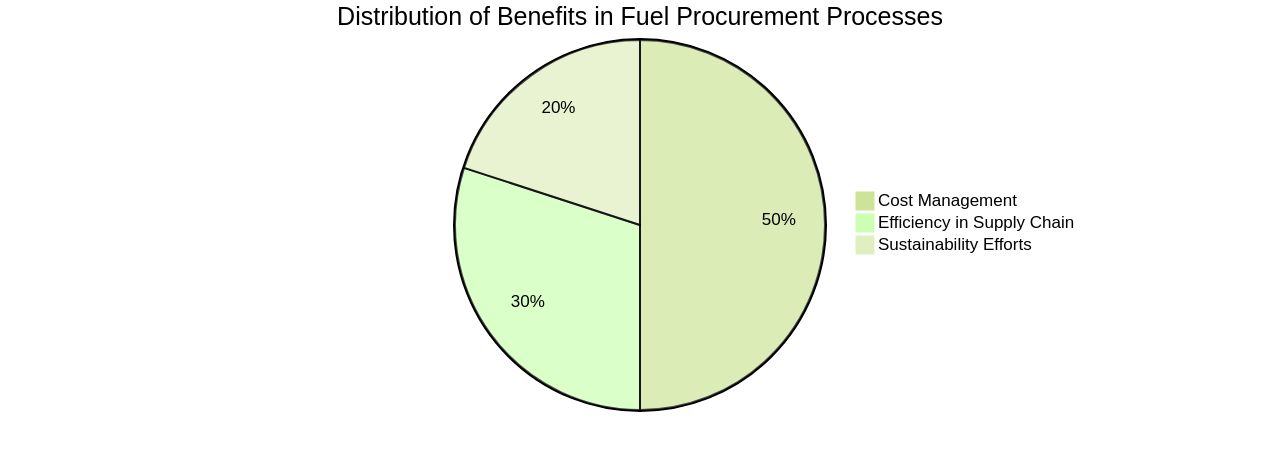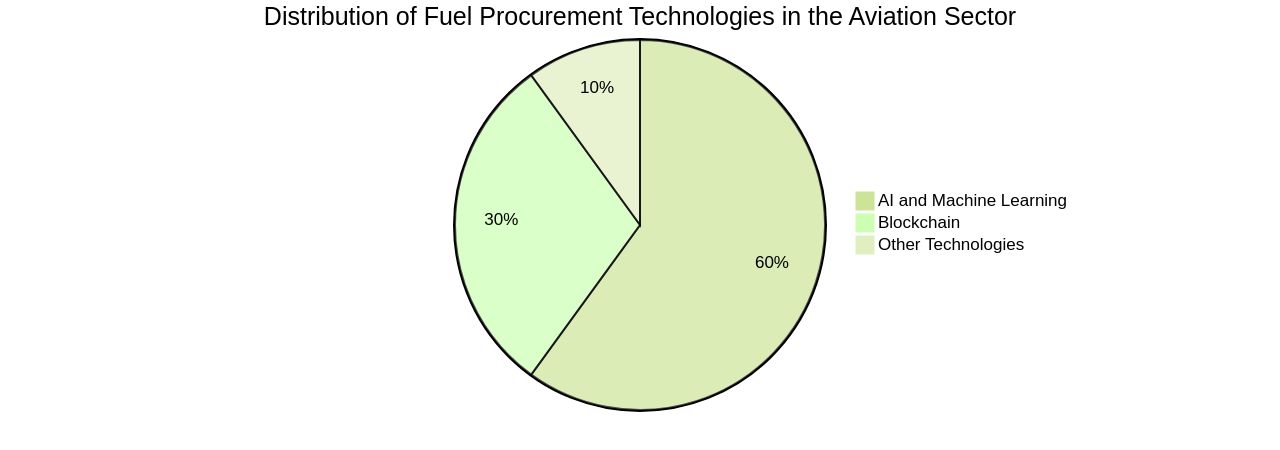Introduction
The aviation industry is constantly evolving, and fuel procurement plays a crucial role in maintaining flight efficiency, cost-effectiveness, and environmental sustainability. With advanced technologies like Unifuel.tech and synthetic fuels from companies like ORLEN, the industry is making significant strides towards a more sustainable future.
In this article, we will explore the importance of fuel procurement in aviation, the role of advanced technology in the process, the benefits of streamlining fuel procurement, and future trends in fuel procurement technology. Join us as we delve into the technical insights and analysis of the renewable fuels industry.
Understanding the Importance of Fuel Procurement in Aviation
The aviation sector is largely dependent on fuel procurement for maintaining flight efficiency, cost-effectiveness, and environmental sustainability. The emphasis is on securing a constant jet fuel supply, with the fuel's quality and cost being central to operations. This is where advanced technologies like Unifuel.
Tech come into play, refining the procurement process and adapting to the industry's evolving needs to enhance fuel sourcing and delivery efficiency. Studies by Jan K. Brueckner, Matthew E. Kahn, and Jerry Nickelsburg highlight the significance of efficient fuel management, as fuel conservation initiatives by airlines can lead to reduced emissions. The industry's aircraft, being long-lived and durable, can be inventoried, offering detailed insights into capital stock utilization and composition.
Companies like ORLEN are leading the charge with synthetic fuels to promote decarbonisation in the aviation industry, aligning with the International Civil Aviation Organization's goal of net-zero carbon emissions by 2050. This commitment to sustainability is echoed by Airbus' 'Hydrogen Hub at Airports' program, which is researching infrastructure requirements and low-carbon operations across the value chain. Despite these strides, challenges persist due to the high costs of aircraft fuels and the space and weight constraints for commercial airliners.
The industry still heavily leans on hydrocarbon fuels, which provide high energy density, essential for long-haul flights that contribute most to CO2 emissions. Yet, with continued investment in advanced technologies like Unifuel.tech's flexiforming technology and strategic partnerships, the industry is moving towards a more sustainable future. Unifuel.tech's technology can be deployed in an idle hydrotreater or reformer, reducing capital expenditure and carbon intensity, thus revolutionizing the fuel procurement process.

The Role of Advanced Technology in Fuel Procurement
The aviation industry is undergoing a significant shift in fuel procurement, with the advent of digital platforms and data analytics playing a central role. These technologies are transforming the way companies handle fuel pricing, market analysis, and data-driven decision-making.
Synthetic fuels, produced by combining green hydrogen with carbon dioxide molecules sourced from various industrial processes, are emerging as a key player in this transformation. Companies like ORLEN are investing in this technology to meet their target of producing 70 thousand tonnes of synthetic fuels annually by 2030.
The use of a 'digital twin', a virtual replica of a production facility, allows for the simulation and fine-tuning of production processes. This approach enables the selection of the most economically viable and environmentally sustainable synthesis methods.
This technological advancement ensures the entire supply chain's visibility, from fuel production to delivery, while also meeting quality standards and regulatory requirements. This shift towards synthetic fuels is driven by the aviation industry's commitment to reducing emissions.
The industry recognizes the need for sustainable aviation fuels (SAF), derived from a range of feedstocks. Despite the aggressive adoption timelines and high SAF volume targets, the limited global production means demand will surpass supply. However, the industry is optimistic about overcoming these challenges and achieving a multi-fuel future. The International Civil Aviation Organization's goal for the industry to achieve net zero carbon emissions by 2050 further drives this shift. The aviation industry is unified in the proposition of a more sustainable future through the near-term implementation of lasting industry-wide and globalized harmonized policies.

Benefits of Streamlining Fuel Procurement
The integration of advanced technology, such as Fuel-IT, in fuel procurement processes is revolutionizing the aviation industry. This technology enhances cost management by leveraging real-time market data, enabling companies to negotiate supply contracts effectively and monitor fuel prices.
The result is a significant reduction in expenses, which bolsters profitability. In addition to cost management, Fuel-IT brings efficiency to the fuel supply chain.
It minimizes the risk of fuel shortages and disruptions by optimizing sourcing, transportation, and storage processes. This ensures a steady supply of jet fuel, guaranteeing uninterrupted operations.
Moreover, the adoption of Fuel-IT aligns with the aviation industry's sustainability efforts. The industry is increasingly opting for Sustainable Aviation Fuels (SAFs) with lower carbon footprints, significantly reducing greenhouse gas emissions.
Fuel-It's advanced technology aids this move towards SAFs, which, despite being expensive and in their infancy, are showing promise in decarbonizing aviation. However, high fuel costs remain a challenge. Despite this, the growing demand for bio-jet fuel and the rapid development of commercial airlines in developing regions are set to expand the global aviation fuel market. As such, the role of advanced technologies like Fuel-IT in streamlining fuel procurement is becoming more critical. They contribute to cost savings, operational efficiency, and pave the way for a more sustainable aviation industry.

Future Trends in Fuel Procurement Technology
The aviation sector is on the cusp of a technological revolution, with AI and machine learning set to redefine fuel procurement practices. These technologies, capable of processing vast quantities of data, are poised to predict fuel price trends, and deliver cost-effective, sustainable fuel procurement strategies.
In addition, the industry is exploring blockchain technology to bolster transparency and traceability within the fuel supply chain, ensuring procurement from reliable and sustainable sources. As the industry continually prioritizes sustainability, advancements in fuel procurement technology are expected, aligning with the sector's evolving needs.
AI has shown immense potential for enhancing safety and efficiency, and optimizing resources. It enables airlines to proactively address safety issues and implement preventive measures by forecasting potential safety concerns through analysis of extensive data on flight patterns, weather, and aircraft performance.
Moreover, the advent of hydrogen-electric aircraft and synthetic fuels signify promising strides towards carbon neutrality, a goal set by the International Civil Aviation Organization for the industry to achieve by 2050. For example, ORLEN's partnership with Yokogawa is a significant step towards launching synthetic fuel production, with a target production capacity of 70 thousand tonnes annually by the end of 2030. Similarly, H2FLY's hydrogen-electric passenger aircraft, HY4, has demonstrated the viability of this technology for future aviation. These technological advancements are not only opportunities but necessities for airlines to maintain competitiveness in a market defined by innovation and wafer-thin profit margins. Thus, the future of fuel procurement in aviation is promising and will continue to evolve to meet the industry's changing needs.

Conclusion
Fuel procurement in aviation is vital for maintaining efficiency, cost-effectiveness, and environmental sustainability. Advanced technologies like Unifuel.tech and synthetic fuels from companies like ORLEN are driving progress towards a more sustainable future. Integrating advanced technology in fuel procurement revolutionizes the industry.
Platforms like Fuel-IT leverage real-time market data to enhance cost management and optimize the supply chain, ensuring uninterrupted operations. Streamlining fuel procurement aligns with sustainability goals by promoting Sustainable Aviation Fuels (SAFs) with lower carbon footprints. Despite challenges such as high costs, the growing demand for bio-jet fuel and developing airlines will expand the global aviation fuel market.
AI and machine learning will redefine fuel procurement by predicting price trends and delivering cost-effective strategies. Blockchain technology will enhance transparency and traceability within the supply chain. With hydrogen-electric aircraft and synthetic fuels emerging, the aviation sector is making promising strides towards carbon neutrality.
These advancements are necessities for airlines to stay competitive. In conclusion, embracing advanced technologies and sustainable practices in fuel procurement enables greater efficiency, cost-effectiveness, and environmental sustainability in aviation. Let us work together towards a greener future for the industry.




